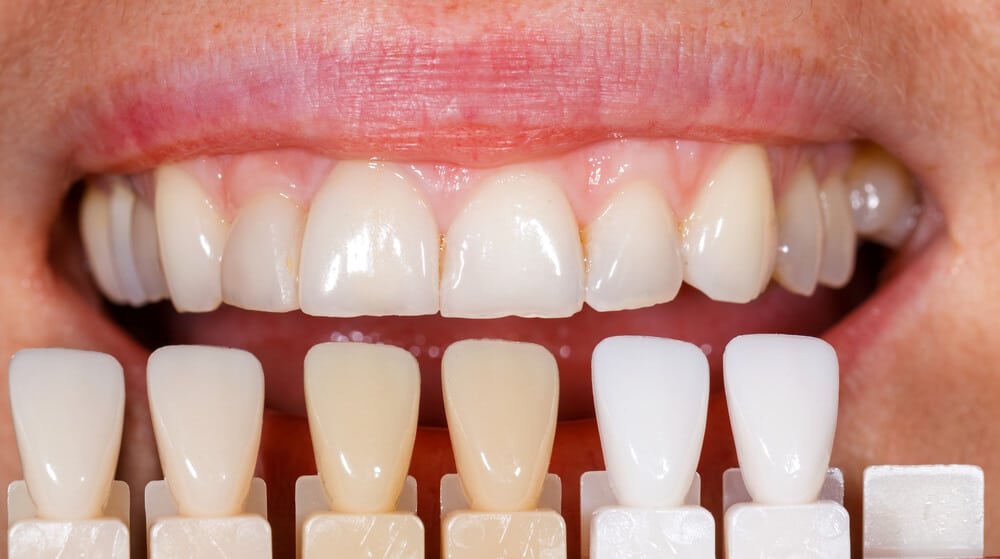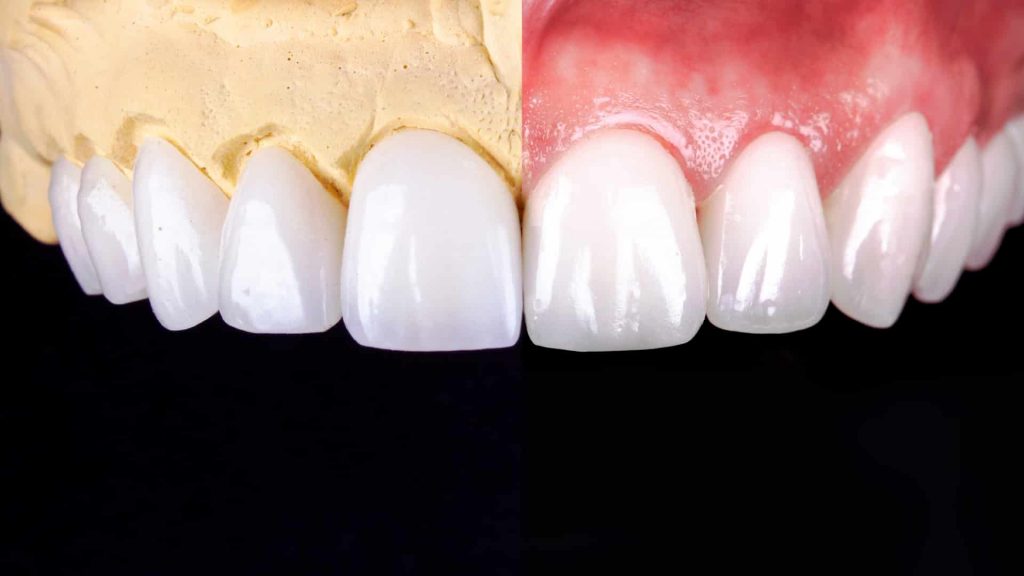Composite Veneers Turkey
Dental veneers might be the route to go if you are interested in fixing the look of your smile. But what are dental veneers or composite veneers? Is there any other type, or is it just blended veneers? Should you get it done? How does the procedure go? Let’s touch upon all of these questions while also answering how to have a smile makeover. After prepping your teeth, the dentist will take a mould of them for indirect veneers. Veneers for indirect restorations are made outside of your mouth. The dentist will etch your teeth first and then apply some adhesive material before placing the indirect veneers after they are prepared. The veneers will stay in place with the aid of this glue or bonding agent. Your teeth will then receive the composite veneers, and the adhesive will be lightened before the veneers are glued to the teeth. The dentist will then polish everything and smooth out any sharp edges. Veneers are difficult to process, but luckily, the Smile Team is here to help you. You can contact us for various dental improvements, and the Smile Team is happy to help brighten your smile with processes such as dental implants and crowns.
After prepping your teeth, the dentist will take a mould of them for indirect veneers. Veneers for indirect restorations are made outside of your mouth. The dentist will etch your teeth first and then apply some adhesive material before placing the indirect veneers after they are prepared. The veneers will stay in place with the aid of this glue or bonding agent. Your teeth will then receive the composite veneers, and the adhesive will be lightened before the veneers are glued to the teeth. The dentist will then polish everything and smooth out any sharp edges. Veneers are difficult to process, but luckily, the Smile Team is here to help you. You can contact us for various dental improvements, and the Smile Team is happy to help brighten your smile with processes such as dental implants and crowns.
What are Composite Veneers?
Composite veneers are customised to each person’s unique needs and are used in dental aesthetics to enhance the formation of the teeth and the overall smile. It is a minimally invasive procedure; thus, anesthesia is typically not necessary. Custom-made composite veneers can be placed over the tooth immediately. You can get an appointment from our clinics for your custom-made composite veneers. Composite veneers are used to cover cracked teeth and worn-down surfaces, to lighten the colour of one or more teeth naturally, and to alter the size and shape of teeth. Additionally, composite veneers can assist in revitalising the face, improving the overall look of the teeth, and correcting the alignment of some teeth without the need for orthodontics.Direct vs Indirect Composite Veneers
There are two types of composite veneers. Composite resin components put directly into your teeth are direct composite veneers. A dentist can quickly prepare your teeth for veneer application, which is considered minimally invasive. In indirect composite veneers, your teeth are prepared similarly to how they would be for direct composite veneers. Still, the veneers are manufactured specifically “indirectly” in a dental laboratory or our dentist’s offices. Until the indirect veneers are fabricated, you will be given a set of temporary veneers. The indirect composite veneers are positioned onto your teeth with a coat of glue at the subsequent visit. Indirect composite veneers, rather than direct, can handle more abrasions and fracture resistance. Contact our clinics for more info on direct and indirect composite veneers.What Steps Are Included in the Procedure?
Composite veneers are thin resin coatings that cover teeth without removing their enamel. This substance can be molded directly onto the tooth, enabling a more attractive, natural-looking, healthier smile. Depending on how many teeth require treatment, the process can be completed with a single session or across several. You’ll start to see effects after only one session because there is no need to carve the teeth, and the glue is put directly into the enamel. Your dentist will etch the enamel of your teeth before placing direct veneers to aid in adherence. The composite resin material will then be attached to your teeth using adhesive glue, which will be applied next. Finally, the surface of your teeth is covered with incredibly thin layers of composite material. The layers of composite resin will be swiftly “cured” by the dentist using a light. The tone or color of your veneers can be chosen by both you and your dentist. To make your veneers look natural, your dentist can combine several hues of composite resin. After prepping your teeth, the dentist will take a mould of them for indirect veneers. Veneers for indirect restorations are made outside of your mouth. The dentist will etch your teeth first and then apply some adhesive material before placing the indirect veneers after they are prepared. The veneers will stay in place with the aid of this glue or bonding agent. Your teeth will then receive the composite veneers, and the adhesive will be lightened before the veneers are glued to the teeth. The dentist will then polish everything and smooth out any sharp edges. Veneers are difficult to process, but luckily, the Smile Team is here to help you. You can contact us for various dental improvements, and the Smile Team is happy to help brighten your smile with processes such as dental implants and crowns.
After prepping your teeth, the dentist will take a mould of them for indirect veneers. Veneers for indirect restorations are made outside of your mouth. The dentist will etch your teeth first and then apply some adhesive material before placing the indirect veneers after they are prepared. The veneers will stay in place with the aid of this glue or bonding agent. Your teeth will then receive the composite veneers, and the adhesive will be lightened before the veneers are glued to the teeth. The dentist will then polish everything and smooth out any sharp edges. Veneers are difficult to process, but luckily, the Smile Team is here to help you. You can contact us for various dental improvements, and the Smile Team is happy to help brighten your smile with processes such as dental implants and crowns.
